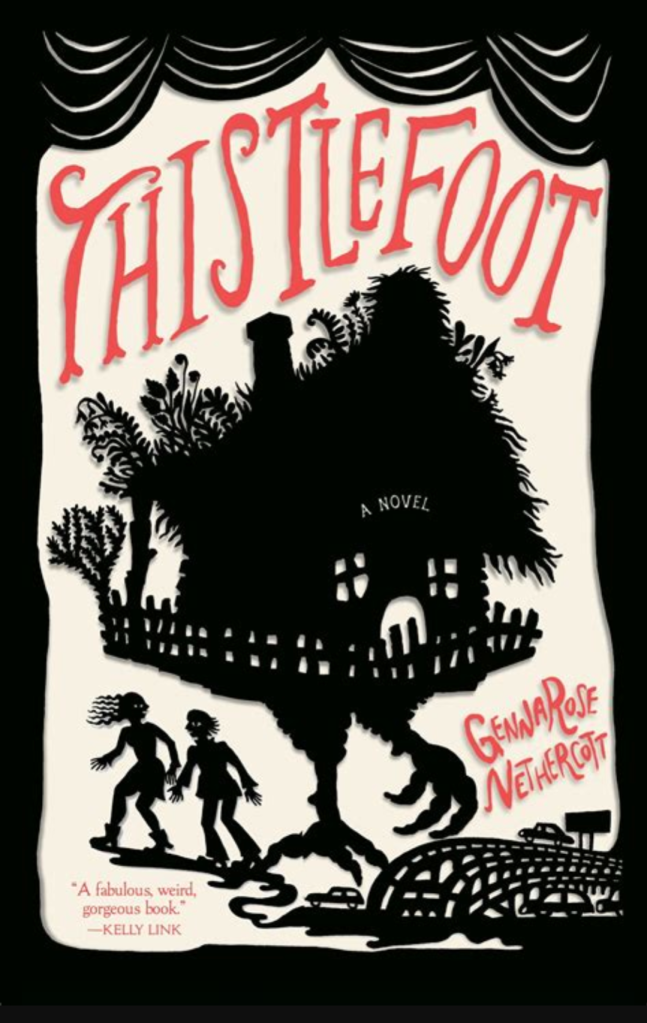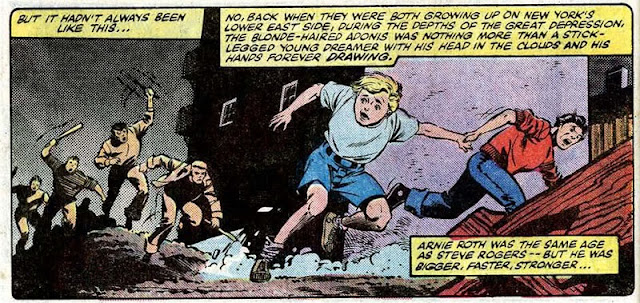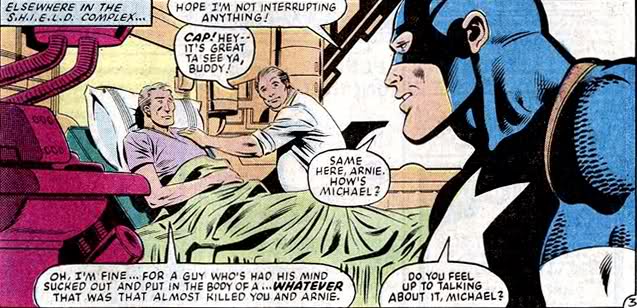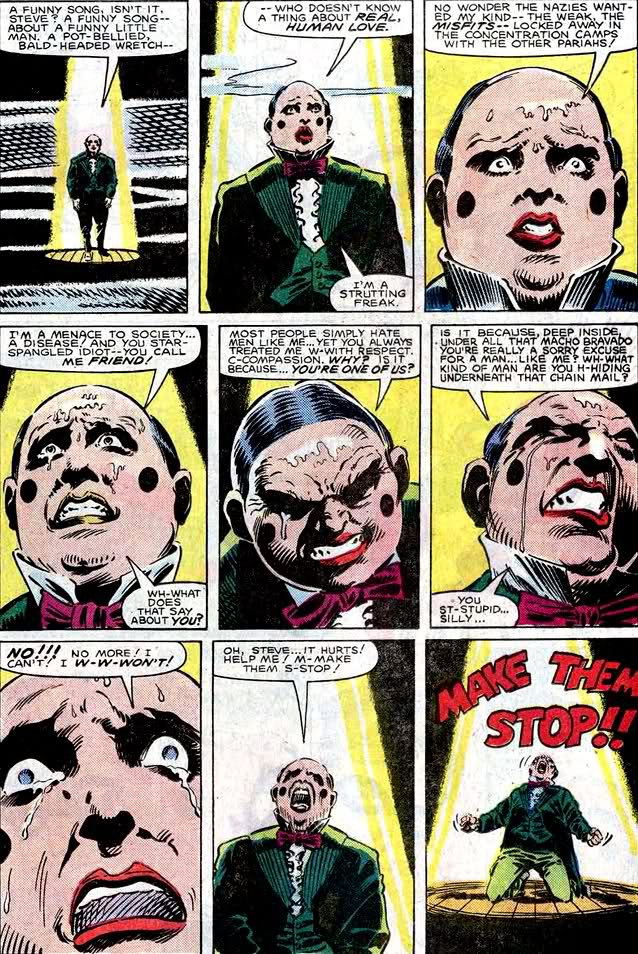Video essay link;https://youtu.be/TuIUdrpys1U?si=sqHnY9qlR67jYScs

The Essay:
(more…)Sistersong
Lucy Holland
This book was beautiful; a retelling of the Twa sisters, it follows three siblings through an Arthur-adjacent tale with links both to real history and myths in The Matter of Britain.
As an Arthurian nerd (read: everything nerd), I loved seeing a story I wasn’t familiar with, a murder ballad that I was familiar with, an amazing queer representation, and a new take on Merlin.
The story manages to do all of it without beating you over the head with its source material, instead guiding through a world that feels totally Holland’s creation. The narrative and characters are remarkably organic and conflicted.
I would absolutely recommend it, especially to a queer audience which all too rarely sees representation outside of mundane coming out stories.

Thistlefoot
GennaRose Nethercott
I’ll cut to the chase, this was one of my favorite books I read in 2023.
Thistlefoot takes place in a world of magic and not, a world where most things are exactly the same as they are in reality but with an important exception —the scars of an event can awaken the spirit of a place.
One of the early mentioned examples of this is a Burger King that grew eyes after a break in.
Thistlefoot, the book’s name sake, is a house that sprouted chicken legs.
The sibling pair at the heart of the story, Bellatine and Issac Yaga, are the inheritors of Thistlefoot and the generational trauma that both makes them who they are and that has been kept from them by their family. They both have their own unusual gifts, which unbeknownst to them are adaptations to that trauma. The book examines disapora in a fascinating way.
The story follows both the Yaga siblings and the history of the house itself in a slow burn reveal of the tragic events that led Thistlefoot to sprout legs and flee.
All while being hunted by a similar oddity, which intends to destroy Thistlefoot.
This book was such a delicate and well constructed handling of generational trauma and particularly genocide. I had gone into it blind and was taken in immediately with the world and characterization.
It’s an absolute recommendation.

It’s October! I should do some spooky books.

Starting the month with Dr Chuck Tingle, Camp Damascus is hands down one of the best books I have read this year. A quick read under 300 pages, it is one of these most effective horror stories I have read in ages. Centered around religious trauma and homophobia, the action begins almost immediately, with no ‘wait till the third act’ nonsense. Shit hits the fan, and hard, and keeps coming. Dr Tingle takes no time to bullshit around with building suspense, the true horror comes from the nonchalant reactions and denials of the clear horrors occuring.
The main character’s neurodivergence was written so naturally and well, it was a wonderfully refreshing representation that I didn’t realize I had been craving.
Easily one of my favorite books of the year, I absolutely encourage you to read it, I am so excited for his next book that I know is in editing stages.
Prove love 💕

Look, everyone wants Captain America to be happy and laid. Ever since Chris Evans called Cap a virgin, a lot of people have scoffingly offered their chosen ship and character dynamics are proof positive that the Sentinel of Liberty gets his boyshorts ripped off.
This of course applying strictly to the MCU.
So I wanted to spend some time talking about one of the few canonically homosexual characters, one of the first homosexual characters openly acknowledged by Marvel starting in 1985, generated within the Captain America title.
That would of course be Steve Rogers’ best friend since childhood, his one time sidekick who he seemed to be constantly saving, the man who calls him Stevie, saved him from bullies as a child, and who he jumps to the aid of no matter what hiatus has taken place in their friendship.

Obviously, it’s Arnie Roth.

When MCU revised the history of Bucky Barnes, in a lot of ways they injected Bucky into Arnie’s role, lending to why it’s so easy to assume more of Buck and Cap’s relationship within the film franchise. Arnie is canonically gay but also merging the two characters makes for a much longer and more intense narrative between Buck and Cap as it fuses two vital relationships in Steve’s life.
Bucky and Steve have always had a long standing history of coming under scrutiny as a couple. When Ed Brubaker revised Bucky’s origin story, it cast Bucky into the protector role for Steve Rogers. It also aged Buck up significantly so as to avoid what the Comics Code had once deemed inappropriate bonding between a man and young boy. By fusing his loyal sidekick with his gay best friend, the MCU kinda set themselves up for #givecaptainamericaaboyfriend
Arnie is important. He is an often forgotten character worth noting because he was representation for LGBTQ+ characters, shown struggling with internalized homophobia, in a long term committed relationship. And his character was introduced in 1985.
In the days where AIDS was still occasionally referred to as GRID (Gay-Related Immune Deficiency) (both terms coined in 1982). HIV was not a term used until 1986.
Not only that, but Arnie is anti-stereotype to the time. He is neither sexually promiscuous, a drug user, nor over sexualized.
He’s just some dude.

Arnie may be bumbling, old, but he’s an everyman. In many ways he’s starkly un-Bucky. Most importantly Arnie provides a concrete example of a homosexual character who is subtle. The fact that he is gay is never the point. And Steve doesn’t berate the point, either.

These storylines set a monumental precedent for LGBTQ+ characters in comic books. Arnie is treated very delicately given the time in which his character was developed.

When his sexuality is forced to the forefront, it’s often a heartbreaking narrative on homophobia.

But most importantly, Cap reacts to homophobia, canonically, like this:

You must be logged in to post a comment.